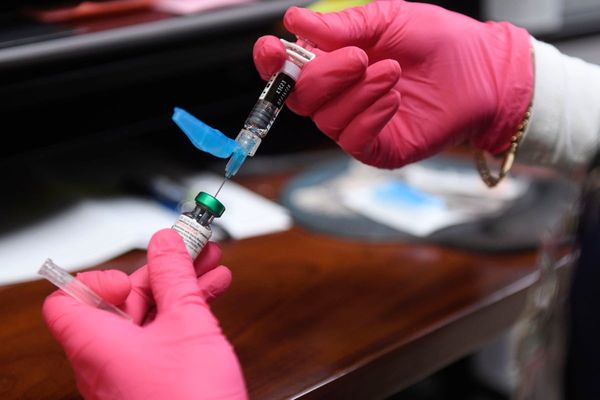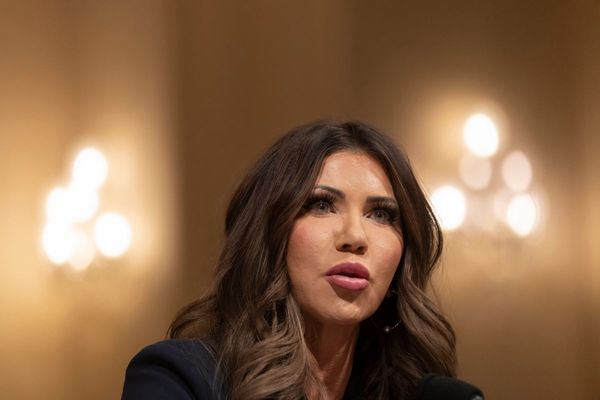
Scotland’s first minister has expressed relief after discovering his parents-in-law in Gaza are alive, although they have run out of clean drinking water.
Humza Yousaf said the welcome news had come through on Sunday morning, hours after describing his worries about whether they were alive or dead following the imposition by Israel of a communication blackout in Gaza on Friday.
He also reiterated his call for a ceasefire and for the implementation of the UN resolution that has called for a sustained humanitarian truce leading to a cessation of hostilities.
On Sunday Yousaf wrote an update on X, formerly known as Twitter: “We heard from my in-laws in Gaza this morning, they are alive, thank God. However, they have run out of clean drinking water.”
He added: “The UN resolution must be implemented. We need the violence to stop, and for significant amounts of aid to get through without delay. #CeasefireNow.”
Yousaf’s wife’s parents, Elizabeth and Maged El-Nakla, who live in Dundee, travelled to Gaza earlier this month to visit their son and four grandchildren and Maged’s 92-year-old mother, who is unwell.
The couple have been unable to find a safe passage out since the first Hamas attack took place on the border with Israel.
Yousaf’s wife, Nadia El-Nakla, told the BBC her parents “continually tell me they feel like they’re going to die”.
On Saturday Yousaf said they had not heard from his in-laws since the intense bombing on Friday night.
“You can imagine how desperately worried we are, and to be frank, we don’t know if they are alive or dead,” he told BBC Scotland.
That reality, he said, was one being faced by many people across the world “who haven’t heard from their loved ones who are trapped in Gaza and have been facing bombardment over the last three weeks”.
He added: “It’s having an impact, of course it is, and not just on my wife. I listened to my four-year-old daughter this morning pretending to phone her granny, and asking when she will come back.”
On Friday the Scottish government published a letter that Yousaf had written to all political leaders in the UK, urging them to support a ceasefire.
He said Israel had a right to protect itself from attack “but in doing so must comply with international law”.
Yousaf said he was seeking support “in helping to stop the staggering humanitarian disaster we are witnessing, which is set to get even worse.
“The situation in Gaza is at the point of being cataclysmic. All of us must do everything we can to prevent that. There must be no more dithering, or delay, together we must call for an immediate ceasefire.”
The Liberal Democrat MP Layla Moran also spoke of the “torturous” worry of not knowing whether relatives of hers in the blackout were alive.
She told the BBC on Sunday she had since learned they were safe “for now”, but said the attitude of people in Gaza had changed from thinking about where to go for security from Israeli shelling to considering: “Where do we want to be when we die?”
Palestinian Christian members of Moran’s extended family are sheltering with about 100 people in a church in Gaza.
The Liberal Democrat foreign affairs spokesperson said the family members on her mother’s side had moved into the church after their home was bombed by the Israel Defence Forces during its retaliation for Hamas’s 7 October attack.
Speaking to Victoria Derbyshire on the BBC’s Sunday With Laura Kuenssberg programme, Moran said: “We are deeply worried for their safety.
“The 24-48 hours where the internet and everything else was cut was torturous. Not knowing whether they were dead or alive – we are worried for them anyway – I can’t tell you what that did to us as a family.
“We have heard since, because someone in the church has a foreign sim that can connect to the Israeli networks, has put out a message saying that, for now, they are safe.”
She added: “Nowhere in Gaza is safe, and the conversation in Gaza, I’m afraid to say, has changed.
“No longer are people saying: ‘Where do we go to be safe?’ The question they are now asking is: ‘Where do we want to be when we die?’
“This is not hyperbole; this is not just from them but their friends and family who we are in touch with. I cannot over-stress the situation.”







